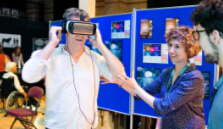
Tuesday 8th October 2024 and 21st January 2025: Introduction to Public Engagement 22nd October 2024 and 4th Feb 2025: Planning your Public…
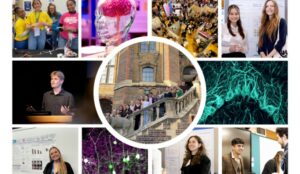
The Cambridge Neuroscience MPhil in Basic and Translational Neuroscience has accepted its 8th cohort of students due to start in October 2024. The course has proved very successful in its first few years (50 excellent…
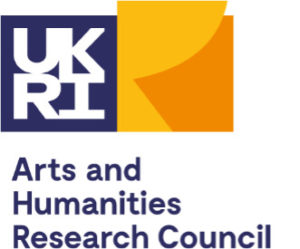
Two new funding calls for Knowledge Exchange and Impact projects focussed on arts and humanities and the other on the social sciences are now open. Potential applicants can find all…
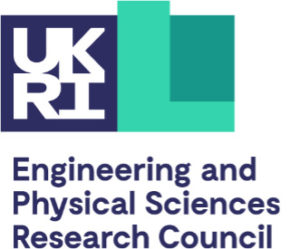
Funding for impact projects is available in the EPSRC subject area. Brief call description below, for full information check here: …
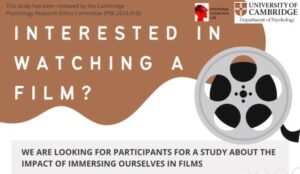
Interested in watching a film? We are looking for participants for a study about the impact of immersing ourselves in films. During your visit to our lab at the Department…

BBSRC Impact Acceleration Account: Impact Project Call 2024 Open to researchers, including post-docs, employed by the collegiate University and working within…

Cambridge scientists have developed an artificially-intelligent tool capable of predicting in four cases out of five whether people with early signs of dementia will remain stable or develop Alzheimer’s disease.
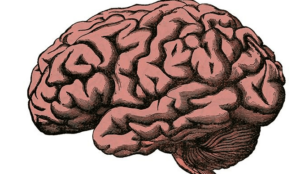
A 1-year Research Assistant position is available to join a collaborative project led by Dr Kate Baker at the MRC Cognition and Brain Sciences Unit and Dr Andras Lakatos at…

An emerging area of future technology is motor augmentation – using motorised wearable devices such as exoskeletons or extra robotic body parts to advance our motor capabilities beyond…
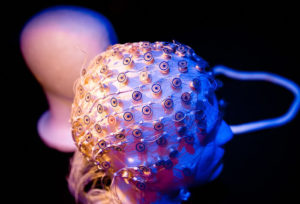
Study uncovers how the brain simulates possible future actions by drawing from our stored memories In pausing to think before making an important decision, we may imagine the potential outcomes…

Restricted call: British Academy Global Professorships 2024 (internal deadline: 4th September 2024) The British Academy invites applications for Global Professorships 2024 programme – a funding opportunity for established…

A Good Read: Gyles Brandreth and Hannah Critchlow Writer and broadcaster Gyles Brandreth has chosen EF Benson’s entertaining tale of competitive snobbery in the 1920s, Mapp and Lucia. In a…

The Starter Fund is an exciting opportunity for University of Cambridge researchers to apply for small grants to undertake innovative public engagement with research…

Restricted call: UKRI cross research council responsive mode pilot scheme: round 2 (internal deadline: 9th September 2024) Full details for this round are not yet available, as the call is expected to…

Funding call Submission Deadline: 18th September 2024 In collaboration with the Cambridge Centre for Data Driven Discovery, the Accelerate Programme for Scientific Discovery are offering…
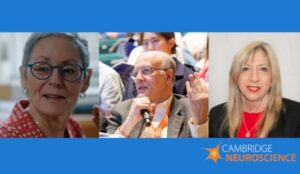
Congratulations to all recognised in the King’s Birthday Honours 2024, which recognises the achievements & service of people across UK, and from all walks of life. We especially congratulate…

The UKRI Medical Research Council (MRC) in the UK will today present the MRC Millennium Medal 2023 to Professor Sir Simon Baron-Cohen, in recognition of his pioneering MRC-funded research into…

The Hevolution Foundation Postdoctoral Training in Geroscience (HF-PTG) Program will provide funding for postdoctoral fellows to conduct high- quality research and receive comprehensive mentoring and training in order to…
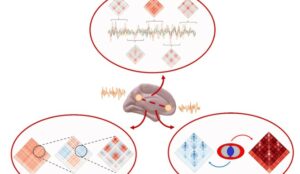
In a Review just published at Trends in Neurosciences, Cambridge neuroscientists, Andrea Luppi, Emmanuel Stamatakis and David Menon outline how we can…
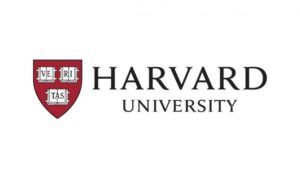
The Rowland Institute at Harvard invites applications for Rowland Fellowships starting in the year 2025. We are seeking outstanding early-career experimentalists in all fields of science and engineering to…

Cambridge scientists have shown that problems regulating emotions – which can manifest as depression, anxiety and explosive outbursts – may be a core symptom of attention deficit hyperactivity disorder (ADHD).

More than 20,000 volunteers have been recruited to a resource aimed at speeding up the development of much-needed dementia drugs. The cohort will enable scientists in universities and industry to…

Congratulations to Susan Gathercole on her election to the Fellowship of the Academy of Medical Sciences. Susan is a cognitive psychologist with interests in memory, learning and language and…

Congratulations to Alex Woolgar on her appointment as Professor of Integrative and Systems Neuroscience in the School of Biological Sciences (SBS), hosted by the Psychology Department. Alex’s excellent international research…
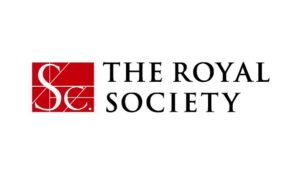
Congratulations to George Malliaras, Sarah Jayne Blakemore, Patrick Chinnery and John Aston (pictured below) on their election to the Fellowship of the Royal Society – a wonderful and…

Barbara Sahakian, Fellow of Clare Hall and Professor of Clinical Neuropsychology in the Department of Psychiatry at the University of Cambridge, was recently awarded the Sir Paul Curran Award at the…

More than 20,000 volunteers have been recruited to a resource aimed at speeding up the development of much-needed dementia drugs. The cohort will enable scientists in universities and industry to…

Dr Elisa Galliano has been awarded a Wellcome Trust Career Development Award, totalling over £1.6 million for six years, to investigate neuronal plasticity at the Department of Physiology, Development and…
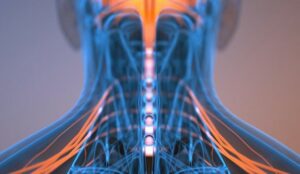
Researchers have developed tiny, flexible devices that can wrap around individual nerve fibres without damaging them. “The ability to make an implant that can change shape…

Congratulations to Spatika Jayaram and Yasir Widatalla on being accepted as part of the BNA Scholars Programme. The BNA Scholars Programme supports students…

Congratulations to Ata Elbizanti on being awarded a Gates Cambridge scholarship to pursue her PhD at Cambridge Neuroscience. Ata Allah Elbizanti, the first Gates Cambridge…

Congratulations to Dr Maura Malpetti who received the Alzheimer’s Association® Neuroscience Next “One to Watch” Award in Chicago this week. “Many…
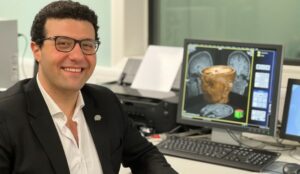
Moataz Assem has been awarded the prestigious Wellcome Trust Early Career Award, totalling over £800k for five years, to investigate working memory brain circuits at the MRC…

We are pleased to invite applications for Post-doctoral fellowships and Clinical PhD fellowships from candidates working in our three priority research areas: headache and facial pain, neuro-oncology, and acquired brain and spinal cord injury. Eligibility…
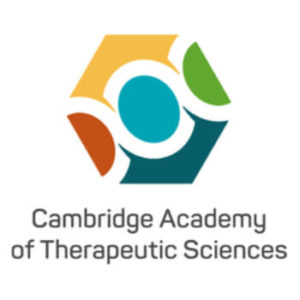
Applications are invited for the CATS administrated Access to Expertise call (AtE). Up to £20K (including VAT) can be obtained to support access to external consultancy services for…

Date: Open ended Cambridge Academy of Therapeutics Sciences runs the Industry Experts in Residence (EiR) programme. Several industry experts …

Funding is available through the Wellcome Translational Partnership award, managed by CATS, to support University of Cambridge early career researchers (postdoctoral researchers) who are working in the area…
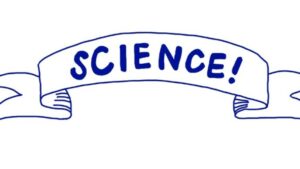
Science Without Anguish – a new blog series on the psychology of wellbeing and productivity in research life This series of 10 blog articles from Michael Coleman discusses dealing…
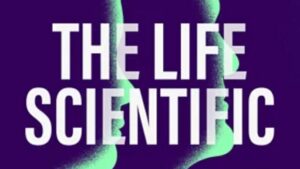
Dr. Hannah Critchlow is an internationally acclaimed neuroscientist who has spent her career demystifying and explaining the brain to audiences around the world. Through her writing, broadcasting and lectures to…
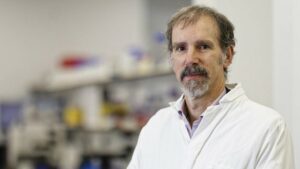
Researchers have used artificial intelligence techniques to massively accelerate the search for Parkinson’s disease treatments. “Machine learning is having a real impact on drug discovery –…
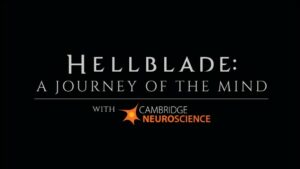
Ninja Theory led a special event at Clare College on Tuesday 9th April, Hellblade: A Journey of the Mind, in Collaboration with Cambridge Neuroscience in advance of the release of Senua’s Saga:…
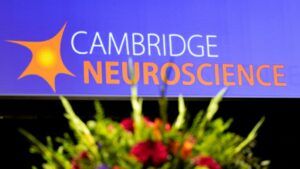
On April 5th 2024, we welcomed more than 240 delegates to Queens’ College for our annual meeting. This year, we focused on ‘Sleep, Consciousness and Cognition’. CNS2024 was…

New research finds around a quarter of Labrador retriever dogs face a double-whammy of feeling hungry all the time and burning fewer calories due to a genetic mutation.
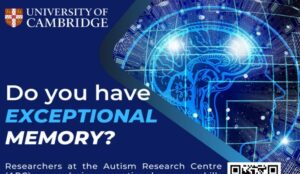
A new study at the University of Cambridge is exploring exceptional memory in autistic and neurotypical people. We are interested in learning more about the brain basis of exceptional memory…

On Wednesday 28th February, a group of Cambridge Neuroscientists gathered to celebrate the opening of the ‘Trevor Robbins Cognitive Neuroscience Laboratory’ at the Department of Psychology. Speeches, lab tours, bubbles…

In this episode of Shambala Speaks, we hear from neuroscientist Dr Hannah Critchlaw who shows us how our brains sychronise, ideas emerge and moral values…
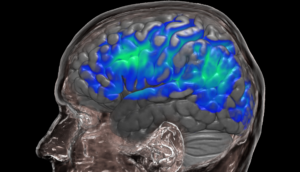
Scientists have found the strongest evidence yet that our brains can compensate for age-related deterioration by recruiting other areas to help with brain function and maintain cognitive performance.

New funding will allow researchers to uncover new information about the changes that occur in the developing brain during late childhood and adolescence, with a focus on both neurotypical and…

Four members of Cambridge Neuroscience feature on the 2023 list of Best Female Scientists in the World Ranking 2023. A total of 12 from the…

With this Diversity prize, The ALBA Network and the The FENS-Kavli Scholars wish to highlight a scientist that has made outstanding contributions to promoting equality and diversity in…
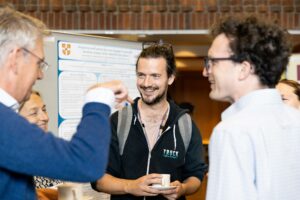
Catch up on CNS 2023: Interdisciplinary Insights on the Future of Dementia Research On September 26th 2023, we welcomed more than 300 delegates to Robinson College for our annual meeting,…
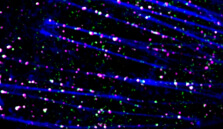
The Wellcome Trust has awarded the University of Cambridge an Institutional Translation Partnership Award (iTPA). Funding of up to £20,000 is available for projects in the remit of the Future of…
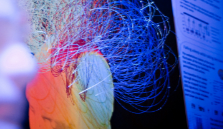
The Adaptive Brain Lab in the Department of Psychology is looking for participants to join their study. Earn up to £160-170 from this six-session brain stimulation MRI study. It will involve three two-hour MRI scans at Addenbrooke’s,…

More than half of patients with auto-immune conditions experience mental health conditions such as depression or anxiety, yet the majority are rarely or never asked in clinic about mental health…
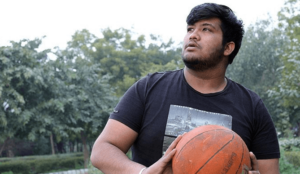
Cambridge scientists have shown that the hypothalamus, a key region of the brain involved in controlling appetite, is different in the brains of people who are overweight and people with…

Findings may demonstrate a brain and behavioural basis for how nicotine addiction is initiated and then takes hold in early life, say scientists. Levels of grey matter in two parts…

The largest ever study of the genetics of the brain – encompassing some 36,000 brain scans – has identified more than 4,000 genetic variants linked to brain structure. The results…

The commonly-held belief that attempting to suppress negative thoughts is bad for our mental health could be wrong, a new study from scientists at the University of Cambridge suggests. Researchers…
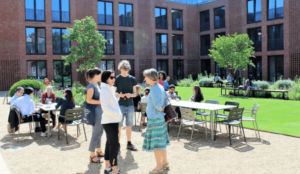
CamBRAIN, or the Cambridge University Neuroscience Society, is dedicated to bringing together student and early careers researchers with an interest in neuroscience across the university. Our committee of postgrad/postdoc scientists…

Taking place on the second Tuesday of every month, Neurotalks are essentially a cross between Pint of Science-like talk evenings and classic society socials. The aim is simple: bring together…

A highlight of the CamBRAIN year is undoubtedly the Cambridge Festival. Each year this sees around 30 volunteers from departments across the university deliver our interactive event Build a CamBRAIN…

Sci-comm is a word we hear a lot. Most postgrad courses have some built in training, and the Twitterverse dictionary surely cites #scicomm and #outreach as some of the most…
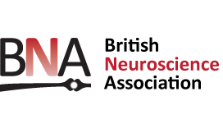
The BNA is able to offer support to students and early-career members to help them attend meetings where they can gain knowledge and skills to help make their research as…